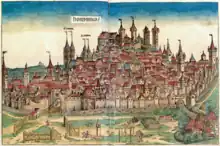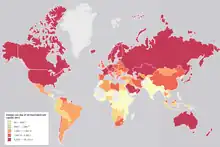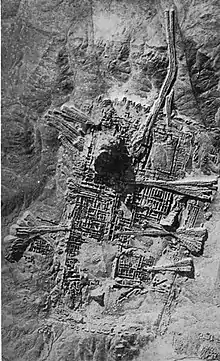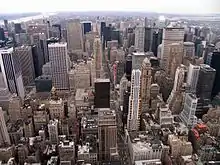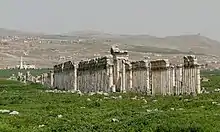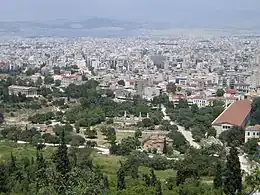The Cities Portal

A city is a human settlement of a notable size. The term "city" has different meanings around the world and in some places the settlement can be very small. Even where the term is limited to larger settlements, there is no fixed definition of the lower boundary for their size. In a more narrow sense, a city can be defined as a permanent and densely settled place with administratively defined boundaries whose members work primarily on non-agricultural tasks. Cities generally have extensive systems for housing, transportation, sanitation, utilities, land use, production of goods, and communication. Their density facilitates interaction between people, government organizations, and businesses, sometimes benefiting different parties in the process, such as improving the efficiency of goods and service distribution.
Historically, city dwellers have been a small proportion of humanity overall, but following two centuries of unprecedented and rapid urbanization, more than half of the world population now lives in cities, which has had profound consequences for global sustainability. Present-day cities usually form the core of larger metropolitan areas and urban areas—creating numerous commuters traveling toward city centres for employment, entertainment, and education. However, in a world of intensifying globalization, all cities are to varying degrees also connected globally beyond these regions. This increased influence means that cities also have significant influences on global issues, such as sustainable development, climate change, and global health. Because of these major influences on global issues, the international community has prioritized investment in sustainable cities through Sustainable Development Goal 11. Due to the efficiency of transportation and the smaller land consumption, dense cities hold the potential to have a smaller ecological footprint per inhabitant than more sparsely populated areas. Therefore, compact cities are often referred to as a crucial element in fighting climate change. However, this concentration can also have significant negative consequences, such as forming urban heat islands, concentrating pollution, and stressing water supplies and other resources. (Full article...)
Selected city -
Belfast (/ˈbɛlfæst/ ⓘ BEL-fast, /-fɑːst/ -fahst; from Irish: Béal Feirste [bʲeːlˠ ˈfʲɛɾˠ(ə)ʃtʲə], meaning "mouth of the sand-bank ford") is the capital and largest city of Northern Ireland, standing on the banks of the River Lagan on the east coast. It is the 10th-largest primary urban area in the United Kingdom and the second-largest city in the island of Ireland. Belfast City had a population of 293,298 in 2021. The population of its metropolitan area was 671,559 in 2011, and the Belfast Local Government District had a population 345,418 .
By the early 19th century, Belfast was a major port. It played an important role in the Industrial Revolution in Ireland, briefly becoming the biggest linen-producer in the world, earning it the nickname "Linenopolis". By the time it was granted city status in 1888, it was a major centre of Irish linen production, tobacco-processing and rope-making. Shipbuilding was also a key industry; the Harland & Wolff shipyard, which built the RMS Titanic, SS Canberra and HMHS Britannic, was the world's largest shipyard. Industrialisation, and the resulting inward migration, made Belfast one of Ireland's biggest cities. Following the partition of Ireland in 1921, Belfast became the seat of government for Northern Ireland. There was major communal violence in the city during partition. Belfast saw further severe violence and numerous bombings during the thirty years of the Troubles, c. 1969–1998, and parts of the city remain segregated between Catholics and Protestants. (Full article...)Did you know -
- ... that the Neil Simon Theatre, a New York City landmark, was the first Broadway theater renamed after a living playwright?
- ... that Sharri MacDonald was removed from the Old Orchard Beach City Council after a controversial 4–3 vote put the entire council up for recall?
- ... that the title of the Taylor Swift song "Cornelia Street" refers to a street in New York City on which Swift rented a townhouse?
- ... that New York City officials seized the tax-exempt Moore-Jackson Cemetery in 1954 for nonpayment of taxes?
- ... that Leon Rains, a bass singer who studied in New York City and Paris, took part in the world premiere of Salome and an early recording of Tannhäuser?
- ... that 17 State Street, near the southern end of New York City's Manhattan Island, was described as "quite literally a beacon for Lower Manhattan"?
Related portals
Related WikiProjects
![]()
- WikiProject Cities
- WikiProject Countries
- WikiProject Geography
 Recognized content -
Recognized content - 
Poulton-le-Fylde (/ˈpoʊltən li ˌfaɪld/), commonly shortened to Poulton, is a market town in Lancashire, England, situated on the coastal plain called the Fylde. In the 2021 United Kingdom census, it had a population of 18,115.
There is evidence of human habitation in the area from 12,000 years ago, and several archaeological finds from Roman settlement in England have been found in the area. (Full article...)Selected article -

General images -
Topics
List articles
Subcategories
Associated Wikimedia
The following Wikimedia Foundation sister projects provide more on this subject:
-
 Commons
Commons
Free media repository -
 Wikibooks
Wikibooks
Free textbooks and manuals -
 Wikidata
Wikidata
Free knowledge base -
 Wikinews
Wikinews
Free-content news -
 Wikiquote
Wikiquote
Collection of quotations -
 Wikisource
Wikisource
Free-content library -
 Wikiversity
Wikiversity
Free learning tools -
 Wiktionary
Wiktionary
Dictionary and thesaurus
-
 List of all portals
List of all portals -

-

-

-

-

-

-

-

-

-
 Random portal
Random portal -
 WikiProject Portals
WikiProject Portals


.jpg.webp)
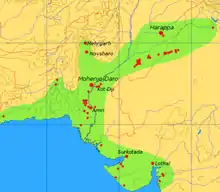
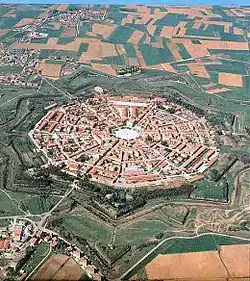



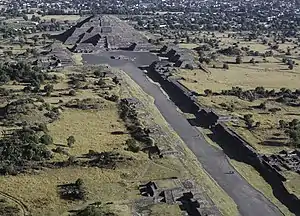


_LACMA_M.2008.40.98.8.jpg.webp)
